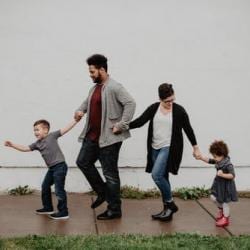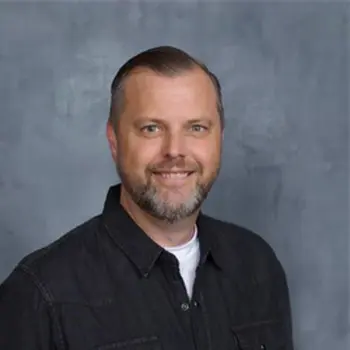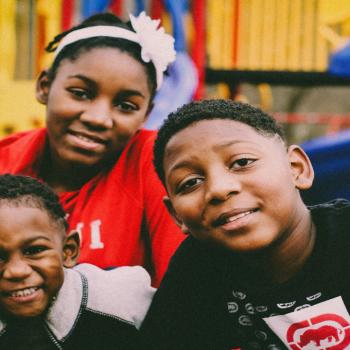Editors' Note: This article is part of the Patheos Public Square on the Future of Faith in America: Eastern Religions. Read other perspectives here.
Religion's focus is mainly on the eternal, those fundamental things that don't change no matter how much the world may change. It is in the unchanging that many find refuge, solace, and inspiration, especially in times of crisis and transition. But just because religions are rooted in the unchanging, that doesn't mean that religious traditions and communities shouldn't always be reflecting on how they are able to connect the core wisdom, vitality, compassion, and creativity of their tradition to the ever-changing needs of the moment. This need to be ever connecting relates to a phrase from the Lotus Sutra, in which the Buddha says,
At all times I think to myself,
How can I cause living beings
To gain entry into the unsurpassed way
And quickly acquire the body of the Buddha?
It's another way of saying, "How can I reach out to these people and help them connect with the heart of my teaching?" It's a worthy question, and the Buddha was an example of someone of great flexibility who in his quest to alleviate human suffering would not be constrained by dogma, but rather taught according to the needs and capacity of his listeners, using skillful means to reach their hearts and minds and encourage them toward their awakening. He provides a great model for all religious leaders today.
My community, Soka Gakkai International-USA, is a lay Buddhist sangha, founded by progressive Japanese educators in 1930, and rooted in the teachings and practices of the Lotus Sutra and the 13th-century Japanese priest, Nichiren. The process of applying Buddhist practice to the many complexities of daily living has always been the focus of our successive leaders, and, I believe, is one of the strengths of our community. With this in mind, I want to lift up some emphases and practices from our community that, while certainly not unique to us, speak to the future trends for religion in the U.S.
First, religion needs to center on the human being. In the world of fundamentalism, abstract principles — creeds and beliefs — are treated as absolutes, while humans are seen as subordinate to these greater gods, ideas, and purposes. This adherence to abstract absolutes makes it possible to think in terms of annihilating the "other." I believe this is a perversion of that wonderful human capability for religious sentiment. In the words of my teacher SGI President Daisaku Ikeda, "What is required is that people — and not abstract principles — be accorded centrality." In other words, religion exists for the sake of the people and not vice versa. "Does religion make people stronger, or does it weaken them? Does it encourage what is good or what is evil in them? Are they made better and more wise — or less so — by religion?"
And this brings me to my second point: religion needs to move from the model of shepherds and sheep, believers and the believed toward the more egalitarian model of teachers and practitioners. In the Lotus Sutra, the ancient Buddhist scripture celebrated for its universality, the Buddha addresses a senior disciple saying, "Shariputra, you should know that from the start I took a vow, hoping to make all people equal to me without any distinction between us." In other words, the Buddha's great wish is for all to become Buddhas, not just believers in or followers of the Buddha. It follows that in supporting the full spiritual agency of their congregants, leaders must become less know-it-all "Lord" Leaders and more let's-discover-together "Servant" Leaders, acknowledging that they too are walking the path, and that through their role as teachers they hope to strengthen their own spiritual virtues and gifts. I remember feeling moved by Pope Francis, who in his first appearance from the balcony overlooking St. Peter's Square, did not immediately regally bestow his blessing in the manner we've seen before. Rather, he asked the people gathered there to pray for him and to bless him as he embarked on this responsibility.
In keeping with this notion of servant leadership, I believe a change is needed in how religious teachings are imparted, moving from didactic to dialogic methods. The Buddha was said to be a master of dialogue, and his teachings consist mainly of his encounters with others. Likewise, since its formation, the Soka Gakkai's central activity has been the neighborhood discussion meeting where ten to twenty people gather, usually in someone's home, to pray, study, and share experiences of how they are applying Nichiren Buddhism in their lives. We consider personal experiences to be central to our practice, going so far as to refer to them as the living Buddhist parables. It is also a way of affirming the dignity and the centrality of each person's struggle to transform their sufferings into growth and happiness. For this SGI in the U.S., we have grown from a handful of such meetings in the early 1960s to more than 3,000 of these gatherings each month throughout the U.S.
Of course, authoritative study lectures and guidance from seniors also play an important role in conveying what the Buddha taught and how it may be skillfully applied. But in the end it is human experience and human behavior that builds nurturing and encouraging faith communities that people want to be a part of, and that contribute in positive ways to the life of our societies.
7/1/2015 4:00:00 AM




